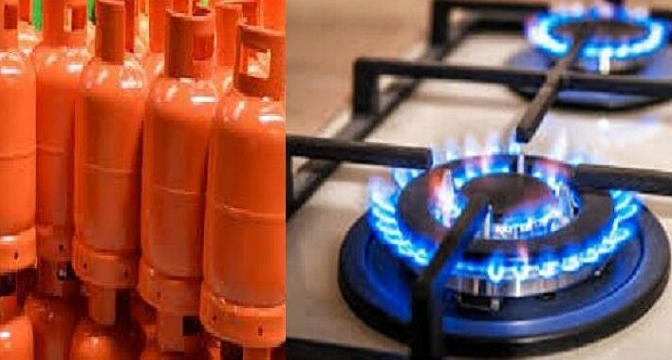Weeks after the Federal Government pledged to tackle the rising cost of Liquefied Petroleum Gas (LPG), commonly known as cooking gas, prices have remained high across Abuja, with residents expressing frustration over the sustained increase.
A survey conducted by the News Agency of Nigeria (NAN) revealed that as of Sunday, LPG still sold for as high as ₦1,800 per kilogram, particularly at roadside retail points, despite recent assurances from government officials.
The price of cooking gas had surged from around ₦1,100 to between ₦1,600 and ₦1,800 per kilogram following the recent industrial action by the Petroleum and Natural Gas Senior Staff Association of Nigeria (PENGASSAN).
In response to the surge, the Federal Government directed the Nigerian Midstream and Downstream Petroleum Regulatory Authority (NMDPRA) to intensify depot monitoring to curb hoarding and ensure adequate supply.
Minister of State for Petroleum Resources (Gas), Dr. Ekperikpe Ekpo, attributed the price hike to two key factors — the PENGASSAN strike at the Dangote Refinery and ongoing maintenance at the Nigeria LNG Train 4 facility, which had reduced the volume of LPG in the domestic market.
Ekpo, however, said operations had since resumed at the Dangote Refinery, with LPG loading for domestic distribution already underway. He added that Seplat Energy’s Bonny River Terminal had also commenced loading, while the Nigeria LNG plant was gradually restoring operations as maintenance neared completion.
Despite these developments, retailers in Abuja said they had yet to adjust their prices due to existing high-cost stock.
“I still have old stock. When the price we buy comes down, we will also sell at a reduced rate. Since the Dangote Refinery has resumed supply, I believe the price will drop when we get new deliveries,” said Mr. Kingsley Paul, an LPG retailer.
At one major outlet, gas sold for ₦1,450 per kilogram. The manager, who requested anonymity, said the price would likely drop once new, cheaper supplies arrive.
Meanwhile, residents have continued to urge the government to find a lasting solution to the rising cost of cooking gas, warning that the high prices threaten the transition to cleaner energy sources.
Environmental expert Mr. Christian Chibuzor said while government efforts to promote cooking gas were commendable, affordability must be prioritised.
“Using cooking gas helps reduce carbon emissions compared to firewood, charcoal, or kerosene, thereby mitigating climate change and improving air quality,” he said.
“However, if the price remains high, many Nigerians—especially in rural areas—will find it difficult to transition. The government must show real commitment to making cooking gas accessible and affordable for all.”





